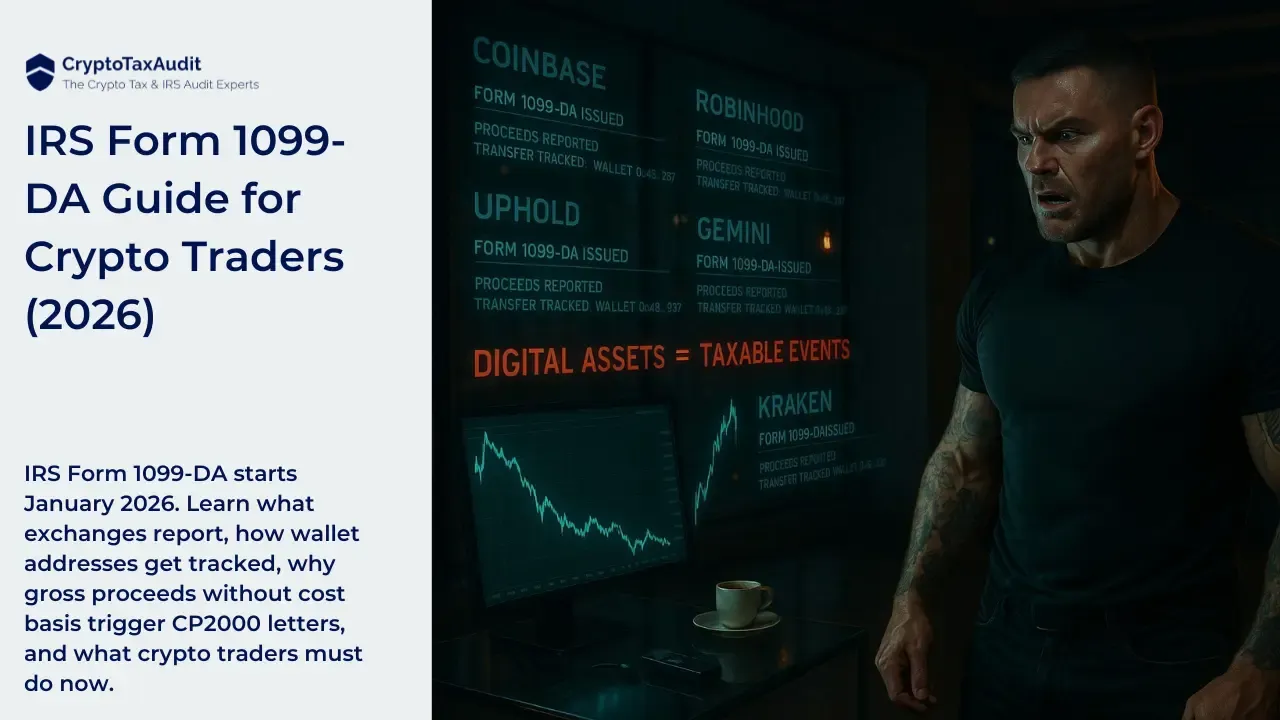
The Risks of Trading Monero: What Crypto Traders & Investors Need to Know
Key Takeaways
-
Monero may block blockchain visibility, but off-chain activity still leaves a trackable trail.
-
If you don’t report your Monero cost basis, the IRS may treat it as zero, meaning you could owe tax on the full amount.
-
Privacy coins often trigger red flags during AML checks at centralized exchanges.
-
Exchanges can freeze or close accounts linked to untraceable Monero transactions.
-
Hiding Monero-related income risks criminal tax fraud charges, fines, and prison.
-
CryptoTaxAudit can help you clean up past reporting and stay compliant moving forward.
Trading Monero, often seen as the go-to privacy coin for hiding transactions, might seem appealing at first glance.
After all, it’s true that Monero makes it impossible for the IRS to peek inside your transactions. Monero makes it impossible for anyone, including the IRS, to see when you send and receive Monero from others.
But here's the catch: while the IRS might not see what's happening inside Monero's blockchain, they can still track the breadcrumbs you leave behind.
How the IRS Can Still Track Monero Transactions Outside the Blockchain
Even if you think you're moving undetected, there are still signs the IRS can pick up on.
Let's say you purchase Monero on an exchange—they see that.
The tricky part comes when you eventually want to cash out.
When you use an exchange toswap Monero for another coin or liquidate it directly into fiat, you're leaving a trail that leads to taxable income.
And that’s where things start to get messy.
If you’re thinking, "Well, they won’t know the original amount I invested," think again.
If you don't disclose the Monero purchase transaction, they’ll assume your cost basis is zero—which means you'll be taxed on the entire value, not just the gain.
Why Not Reporting Monero's Cost Basis Can Cost You Big in Taxes
When you trade Monero for another crypto, like Coin ABC, and eventually sell it for cash, the IRS will ask: "What’s the cost basis of ABC?"
If you’ve been hiding your Monero transactions, you’ll have no proof of your actual cost basis.
The IRS will assume your gain is 100%, and who wants to be hit with taxes on money you didn't really make.
How Exchanges Flag and Block Monero Transactions Through AML Checks
Another huge issue with Monero trading is how exchanges handle it.
As you move coins from place to place, these exchanges look at the history of your assets.
If Monero pops up in that history, it can raise red flags.
Enough flags, and suddenly you’re having a hard time cashing out.
Exchanges like Coinbase and Kraken do Anti-Money Laundering (AML) checks on all incoming coins, and if they think your Monero has a questionable background, they could freeze or close your account altogether.
You might think Monero is your ticket to flying under the radar, but the reality is that trying to exit the system can be far more challenging than entering it.
Having accounts shut down or being locked out of exchanges limits your options, leaving fewer “off-ramps” when you need to convert back to fiat.
The Legal Consequences of Hiding Monero Income from the IRS
Beyond the technical hurdles, the legal risks of hiding Monero transactions are huge.
The IRS doesn’t need to know every detail of your transaction to make accusations.
If they catch wind that you’re hiding income in excess of$10,000, they can accuse you of criminal tax fraud.
We're talking fines up to $250,000 and upto three years in prison.
In order to defend yourself in court against criminal tax fraud, you will have to disclose all your Monero transactions or suffer the consequences.
How to Stay Compliant with Monero and Other Privacy Coin Transactions
At the end of the day, if you’re dabbling in Monero or other privacy coins, it’s critical to stay on top of your tax reporting.
Hiding income might seem like a game at first, but when the IRS starts playing too, things can get serious quickly.
If you’re feeling unsure about how to report these types of transactions, don’t wait until it's too late.
Contact us at CryptoTaxAudit we can help you clean up your tax reporting and make sure you're on the right side of the law.
The IRS has ways of finding you, even if they don’t know the exact numbers yet.
Related Article: New IRS 1099-DA Rules: Prepare NOW for the 2025 Crypto Tax Changes!
Frequently Asked Questions
Q: Is Monero really untraceable by the IRS?
A: While Monero’s blockchain is private, the IRS can still detect your activity through exchange records and fiat conversions. They don’t need full visibility to investigate unreported income.
Q: What happens if I don’t report Monero transactions?
A: The IRS may assign a cost basis of zero, taxing you on the full amount received. Worse, unreported Monero gains over $10,000 can trigger criminal fraud charges.
Q: Can Monero cause my exchange account to be flagged or frozen?
A: Yes. Many exchanges perform AML checks and may even indirectly freeze accounts if Monero is detected in your transaction history.
Q: What are the penalties for hiding Monero income?
A: If the IRS proves criminal tax fraud, you could face fines up to $250,000 and up to three years in prison.
Q: Can CryptoTaxAudit help me fix past Monero-related reporting issues?
A: Absolutely. We help clients resolve unreported privacy coin transactions and get back into compliance before the IRS catches on.
Want the audio version? Click here to watch the narrated blog on YouTube.





